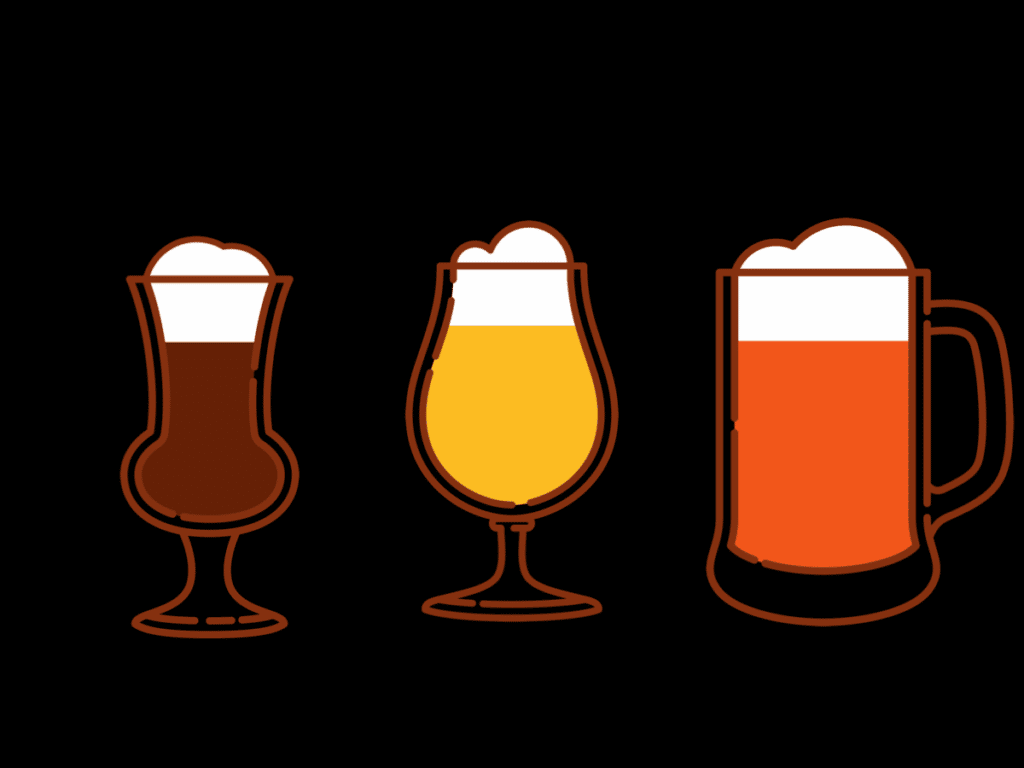The craft cannabis and craft beer markets have a lot in common. Here’s everything you need to know about these similarities.
The craft cannabis and craft beer industries are part of a larger field of premium products made by similar people and geared toward similar consumers. No, we aren’t talking about products you consume before a Laser Floyd show. Nope, it’s not the most Googled products in Portland, Oregon, either–but you’re getting closer.
We are referring to the booming artisan and craft products markets that are opening up all over America. It seems that the craft cannabis and craft beer markets, in particular, have a good amount of cross-over in individual buyers and investors, both of whom have similar motivations that are found across most artisan markets.
These industries also have similar histories: prohibition led to illegal markets of both beer and cannabis. And with both industries, the homemade market – and to some extent, the illegal market – did not end with legalization.
Consumer Motivations and Industry Drivers
Both the craft cannabis and beer markets are driven by taste, product quality, and the consumers’ overall experience. Both are also dominated by industry professionals and hobbyists who want to produce the best product possible.
The only way to make a name in the craft beer or craft cannabis market is by making an outstanding, unique product. No one succeeds in these industries without beer or cannabis that tastes and feels great with bonus points for smell, potency, and authenticity.
Both of these industries are also driven by consumers’ need for diversity. People have different tastes, and most consumers want variety. This generates a massive demand for a multitude of brands, each with an assortment of selections. America currently houses over 5,000 craft breweries and 2,500 legal growers.
Consumer Cross-Over
Perhaps these similarities are why the craft cannabis and craft beer market segments overlap so much – their consumers are the same people after the same thing: product quality.
Areas with a lively craft brewery scene seem to also strive for marijuana legalization and premium cultivation. Oregon, Colorado, Washington, the North-Eastern US, and Western Canada all come to mind as pioneers in both the craft beer and craft marijuana industries.
Breweries and Growers
Breweries and growers share commonalities just like their industries’ consumers. The demands and histories of these craft industries have shaped their markets. By creating expectations of quality and authenticity, the history of brewers and growers has segmented these markets based on operational size.
Structure of Markets
In both of these industries, science and artistry come first. For any industry where this is true, the market is likely to split into three segments: a lively homemade (grown and brewed) market, small businesses and local markets, and large businesses and corporations.
Homegrown and Homebrewed
The homegrown and homebrewed cannabis and craft beer “markets” are defined by personal production and use. Many states permit home-grows and brews; however, the sale of homemade products is prohibited.
These do-it-yourselfers range from hobbyist and amateurs growing and brewing for themselves to masters of these crafts creating submissions to contests.
Local Markets and Small Businesses
Local markets for high-quality craft cannabis and beer are thriving all across America. These small businesses typically set trends in and put pressure on the corporate and homemade markets.
The larger businesses discussed in the next section follow the lead of new and innovative microbreweries and grow operations. Once you see a unique microbrew or craft beer become successful, it won’t be long until a larger brand has a response.
Hobbyist brewers and growers also often adopt trends and approaches that catch on in these middle-tier local markets. However, you may also see small-batch craft breweries taking inspiration from homebrewed contest submissions.
Corporations and Large Businesses
Corporations and larger businesses have been acquiring craft breweries and grow operations left and right. Constellation Brands, AB InBev, MillerCoors, and Heineken have spent over $2.25 billion acquiring craft breweries in the last five years alone.
They’ve made these investments out of necessity. In recent decades, craft breweries have thrived, while beer sales have stagnated. Meanwhile, huge brands are falling out of popularity quickly.
Although you’re more likely to find derivative tastes in corporate brands, these beers and strains also play an important role. The money behind big brands can often advance brewing and growing technologies. In fact, technologies that allow for more controlled homebrews and grows often filter down from the mass production methods developed by large businesses. We believe the flower and THC oil produced from mass craft cannabis production facilities will be used in edibles and smoking consumption products (pre-rolls & vape) where taste and quality are lesser important.
Legal History of Craft Brewers and Growers
Both of these industries’ legal histories have shaped their market structures. In fact, lively illegal markets still exist in many regions of the United States, even where both products have been legalized.
Chicago and Cleveland have developed thriving beer trade, beer swap, and underground microbrew scenes, for instance.
While the sale of illegal marijuana has plummeted, this largely concerns unethically sourced cannabis. Homegrown and technically illegal trades are still thriving, along with less-than-legal delivery and customer service-centric businesses.
Brewery-Grower Cross Over
It’s not just us that have noticed similarities in these two industries. Breweries and growers themselves have taken note of the comparable industry standards and begun introducing an array of hybrid products.
Corporate-owned breweries have been throwing piles of money behind cannabis. For instance, AB InBev has partnered with the Canadian grower Tilray to invest up to $100 Million in a cannabis beverage venture. The company behind Corona has also paid $191 million for a stake in Canopy Growth, the world’s largest legal marijuana producer.
But it’s not just large corporations seeing opportunities in these markets’ similarities. Local brewers are also putting out tons of new, innovative hybrid products to help usher in the cannabis industry. The world’s leading craft brewery is set to release THC-infused sparkling water, for instance.
Last Call
These markets have developed these similarities in response to the consumers’ quest for quality and struggle for variety. Brewers and growers themselves also seem to be finding a lot of pride in their products’ unique qualities.
This has led to a boom of craft breweries and growers of different sizes, which share industry drivers and motivations. These comparable markets also seem to be compatible partners. Many craft breweries and cannabis growers have already begun taking advantage of their shared desire for quality and originality by teaming up to create innovative products.
As of yet, it is unclear if this compatibility hints at craft cannabis replacing the craft beer market. Regardless, as of now, it seems the world is big enough for both craft beer and craft cannabis. Both of these markets continue to thrive even as other, less premium markets such as domestic beer become stagnant.
This may be because these markets are part of a larger artisan and craft products market that has exploded in recent decades. Overall, this larger artisan boom seems to suggest one thing above all: the emergence of a smarter, more careful, and better-researched consumer.
Sources:
- https://www.statista.com/statistics/596641/us-cannabis-businesses-number/
- https://vinepair.com/craft-beer-sales/
- https://money.cnn.com/2018/01/22/news/companies/budweiser/index.html
- http://www.mashtunjournal.org/2012/10/chicagos-underground-homebrew-counter-culture/
- https://www.cleveland.com/drinks/index.ssf/2014/12/beer_trade_underground_and_ill.html
- https://www.cato.org/publications/policy-analysis/how-legalizing-marijuana-securing-border-border-wall-drug-smuggling
- https://www.businessinsider.com/constellation-brands-acquires-stake-marijuana-startup-canopy-2017-10




